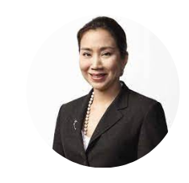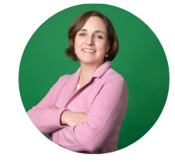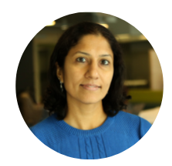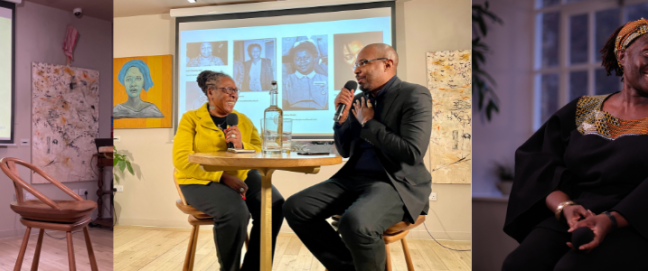Asia Philanthropy Circle’s latest research study, the Future of Asian Philanthropy, examines what society could look like in 2050, and how philanthropy might fulfil its promise as a positive, impactful force toward a fair and sustainable future for all. What can we – as philanthropists, foundations, and implementing organisations – do to adapt and apply recommendations to our context and issues in our realms of influence to shape a better tomorrow?
Alliance hosted a global event on Asia in 2050, in partnership with Asia Philanthropy Circle.
Moderated by digital editor Elika Roohi, the panel included:
- Laurence Lien, Chairman and Acting CEO, Asia Philanthropy Circle; and Chairman, Lien Foundation
- Pritha Venkatachalam, Partner and Co-head, Asia and Africa, The Bridgespan Group
- Elizabeth Knup, Regional Director in China, Ford Foundation
- Watanan Petersik, Advisor, Taejai.com; and Board Member, Asia Philanthropy Circle
A few highlights from the event:
 Laurence said:Part of our work [at APC] is to shape a regional vision of the sector, so naturally we get asked what is Asian philanthropy and how is it different from elsewhere? We answer this by asking another one – what will Asian philanthropy look like in the future? We’re not competing with other regions to develop a better model; it’s just we think that the context for philanthropy is very different for Asia, and that’s why the philanthropy itself will also be different.
Laurence said:Part of our work [at APC] is to shape a regional vision of the sector, so naturally we get asked what is Asian philanthropy and how is it different from elsewhere? We answer this by asking another one – what will Asian philanthropy look like in the future? We’re not competing with other regions to develop a better model; it’s just we think that the context for philanthropy is very different for Asia, and that’s why the philanthropy itself will also be different.
 Watanan: Driving factors are, in the hierarchy of systems thinking, mental models – government self-perception; society’s attitudes toward inequality; and how little cooperation that society is willing to engage in, are all part of the framework of thinking and understanding the world in which we live. These mental models will shape how society shapes its priorities, the types of roles different actors in society should take in achieving these priorities, and whether we fulfil these roles collaboratively or not. …The recommendations set out in this research are always directed towards seeing the evolution of these mental models over the next few decades to achieve… a more positive scenario.
Watanan: Driving factors are, in the hierarchy of systems thinking, mental models – government self-perception; society’s attitudes toward inequality; and how little cooperation that society is willing to engage in, are all part of the framework of thinking and understanding the world in which we live. These mental models will shape how society shapes its priorities, the types of roles different actors in society should take in achieving these priorities, and whether we fulfil these roles collaboratively or not. …The recommendations set out in this research are always directed towards seeing the evolution of these mental models over the next few decades to achieve… a more positive scenario.
 Elizabeth: The Ford Foundation is an American foundation and consider ourselves a social justice foundation, and we have offices all around the world – including 3 in Asia. …We’re very interested in what it means to be a global foundation that’s rooted in the US but present in other parts of the world, where philanthropy itself manifests differently in each of these regions. It’s been a learning journey for me to understand that different regions and different societies really think about the role of philanthropy differently.
Elizabeth: The Ford Foundation is an American foundation and consider ourselves a social justice foundation, and we have offices all around the world – including 3 in Asia. …We’re very interested in what it means to be a global foundation that’s rooted in the US but present in other parts of the world, where philanthropy itself manifests differently in each of these regions. It’s been a learning journey for me to understand that different regions and different societies really think about the role of philanthropy differently.
 Pritha: With some funding from the World Health Organization, [The Bridespan Group] undertook some work during the pandemic looking at community engagement in the slums, which are called urban informal settlements in other countries, but ‘slums’ in the Indian government policy context in Mumbai, where covid pandemic was spreading quite rapidly and was quite uncontrolled in the first couple of months. Most of the donors and government came to the support of these communities through providing food aid. Initially while the government and philanthropy role was to provide cooked food and dry rations to these communities where literally the people were standing in a queue with their plates, who were thrown out of their livelihoods during the pandemic. We interviewed the community representatives – women, youth as well as adolescent collectives there – the biggest thing we heard was the loss of agency and a loss of dignity, and a need for the government and philanthropic forces to recognise them, not just as communities in need but communities as assets and what they bring to the table.
Pritha: With some funding from the World Health Organization, [The Bridespan Group] undertook some work during the pandemic looking at community engagement in the slums, which are called urban informal settlements in other countries, but ‘slums’ in the Indian government policy context in Mumbai, where covid pandemic was spreading quite rapidly and was quite uncontrolled in the first couple of months. Most of the donors and government came to the support of these communities through providing food aid. Initially while the government and philanthropy role was to provide cooked food and dry rations to these communities where literally the people were standing in a queue with their plates, who were thrown out of their livelihoods during the pandemic. We interviewed the community representatives – women, youth as well as adolescent collectives there – the biggest thing we heard was the loss of agency and a loss of dignity, and a need for the government and philanthropic forces to recognise them, not just as communities in need but communities as assets and what they bring to the table.
You can watch the full recording of the event here:
Our next Alliance event takes place in May in partnership with Lightful on Philanthropy and AI. Register here to attend!
Amy McGoldrick is the Head of Marketing, Advertising & Events







Comments (0)